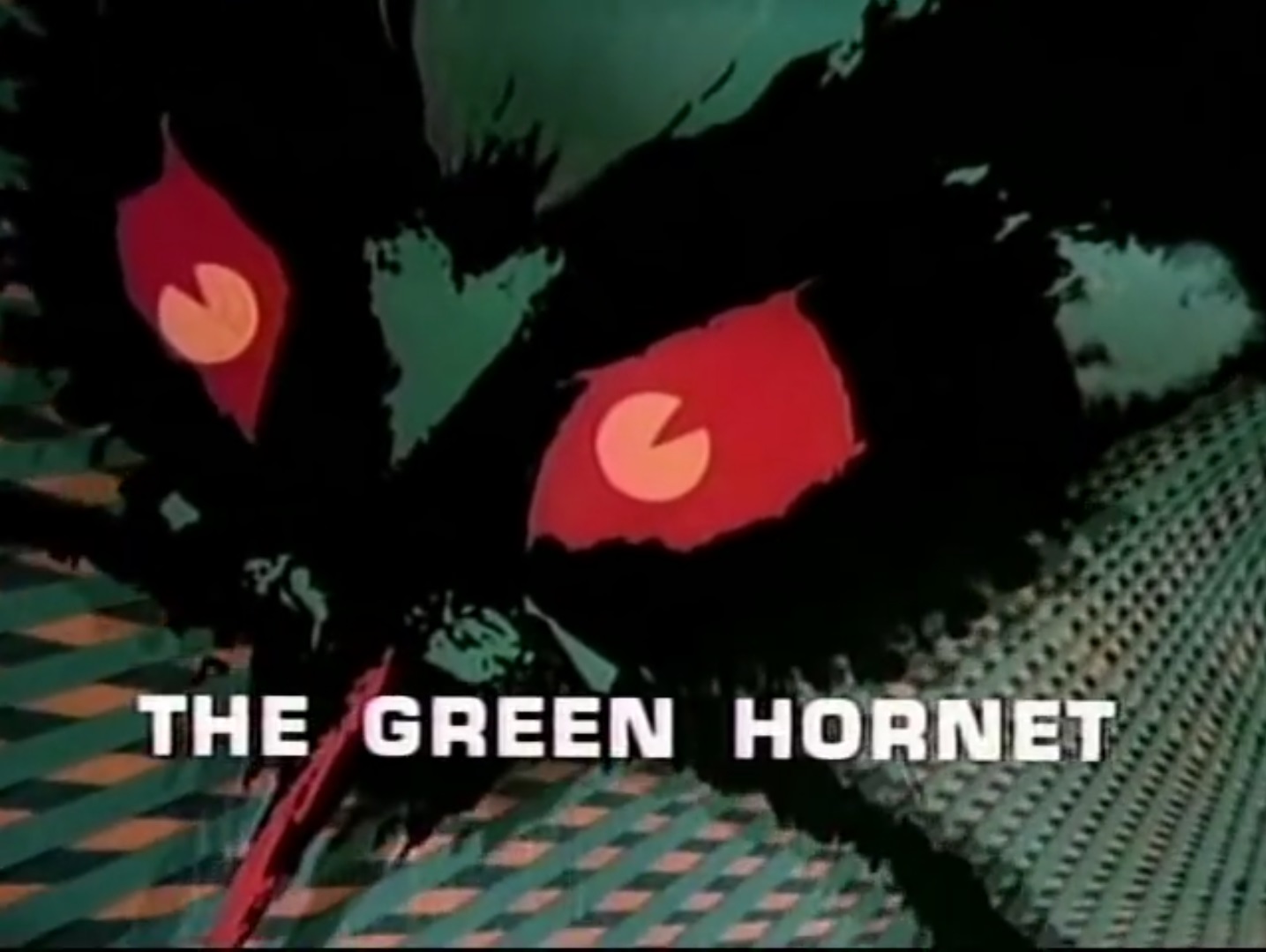
by Joe Reid
A Shadowy Reflection
As this most intriguing and excellent season of Star Trek continues on we find ourselves delighted week after week with more thoughtful and fantastical stories. This week takes the cake! I have stated repeatedly that Star Trek is a mirror to society here on Earth, today in 1967. This episode took that mirror and held it up to its own world and its characters. Appropriately, the writers called it “Mirror, Mirror”. Let’s take a gander at it and see what’s on the other side.
The episode opens on an alien world as a storm rages. Captain Kirk is in discussion with the very human looking Halkan Council to allow the Federation to mine dilithium on their planet. Uhura, Dr. McCoy, and Scotty are with him as part of the landing party. With negotiations stalled, as the Halkans don’t wish to see their dilithium used by those who may cause harm to even a single person, Kirk decides to return to the ship due to the coming ion storm.
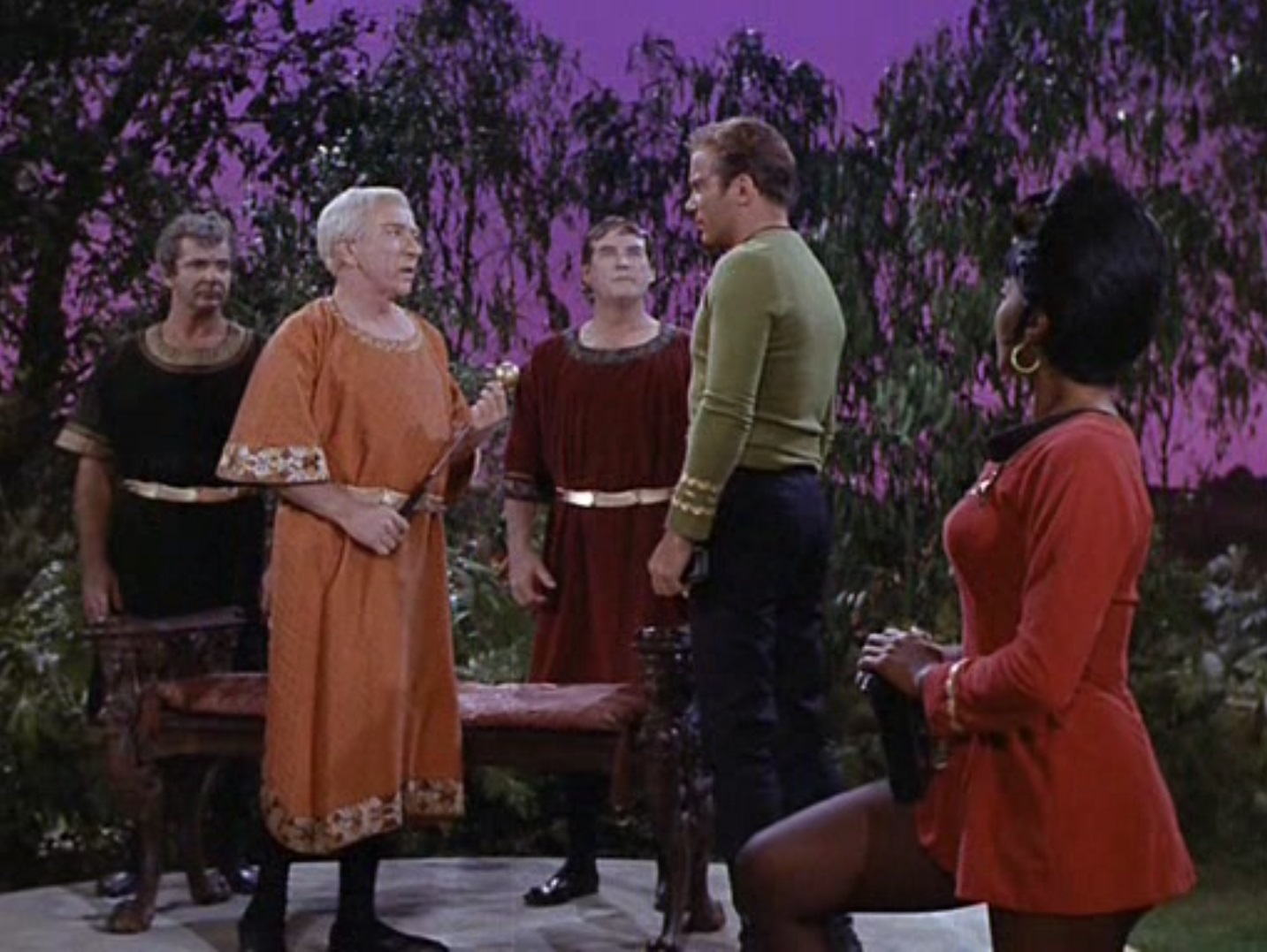
"Do not try to adjust your communicator. We control the horizontal and the vertical." (Vic Perrin, head Halkan, is the narrator for The Outer Limits)
As the four of them are transported to the ship, something goes wrong and instead of appearing on the USS Enterprise they find themselves wearing different clothing as they appear on a different Enterprise. They are immediately confronted with Spock sporting a goatee who then calls for the eradication of the Halkans for not giving their dilithium to the "Empire" and who is quick to painfully punish Transporter Chief Kyle for an issue with the transporters.
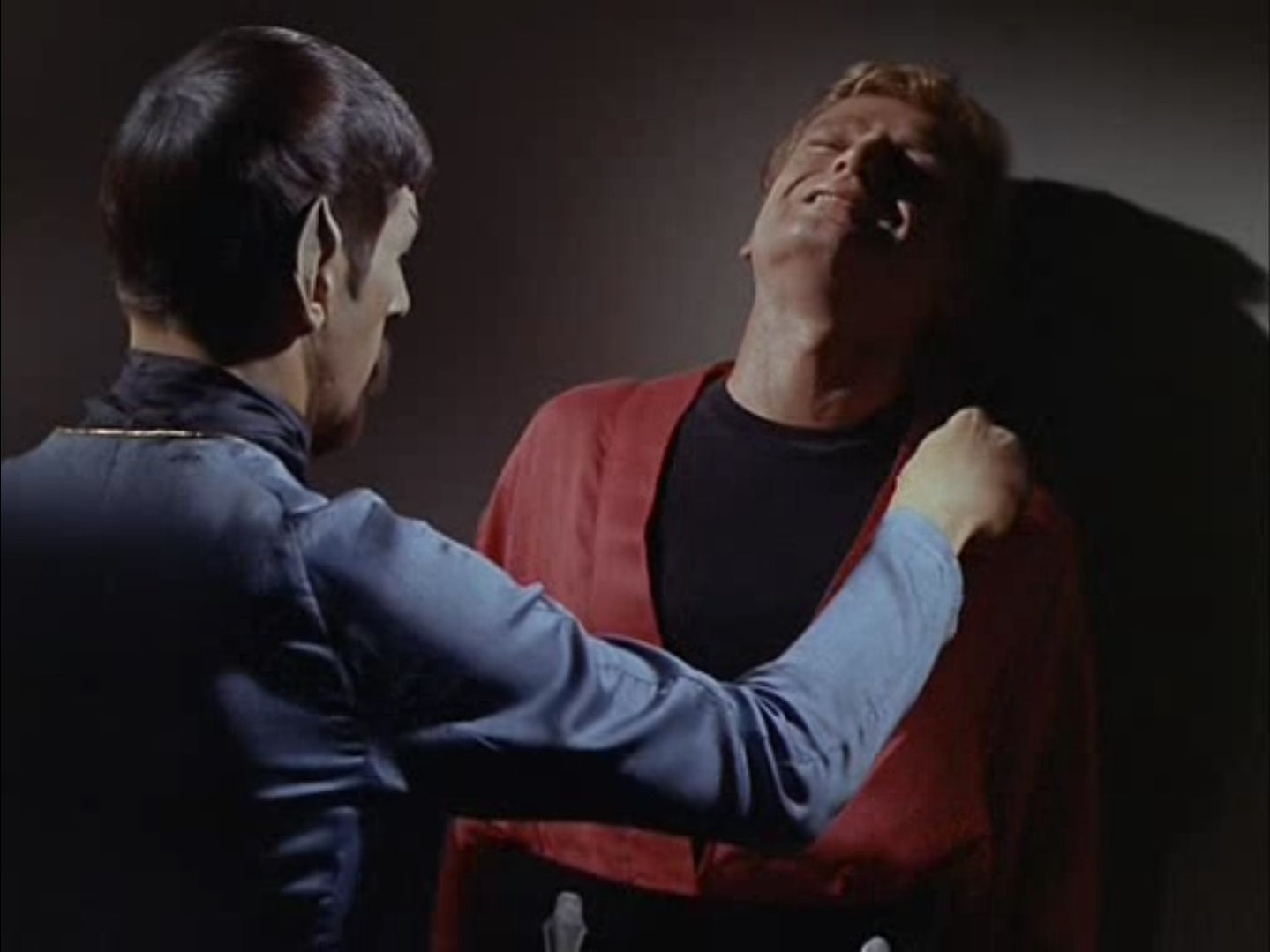
Performance reviews are brutal on this Enterprise
Kirk soon figures out that the four of them are in a parallel universe. Finding themselves isolated among violent familiar looking strangers, the quartet seek to find a way to save the Halkans from destruction and get themselves back home. As they attempt to masquerade as "themselves" on the brutal ISS Enterprise while trying to carry out their secret mission, Urura is forced to resist the advances of a savage and craven Sulu, while Kirk barely survives an assassination attempt by an ambitious and bloodthirsty Chekov.
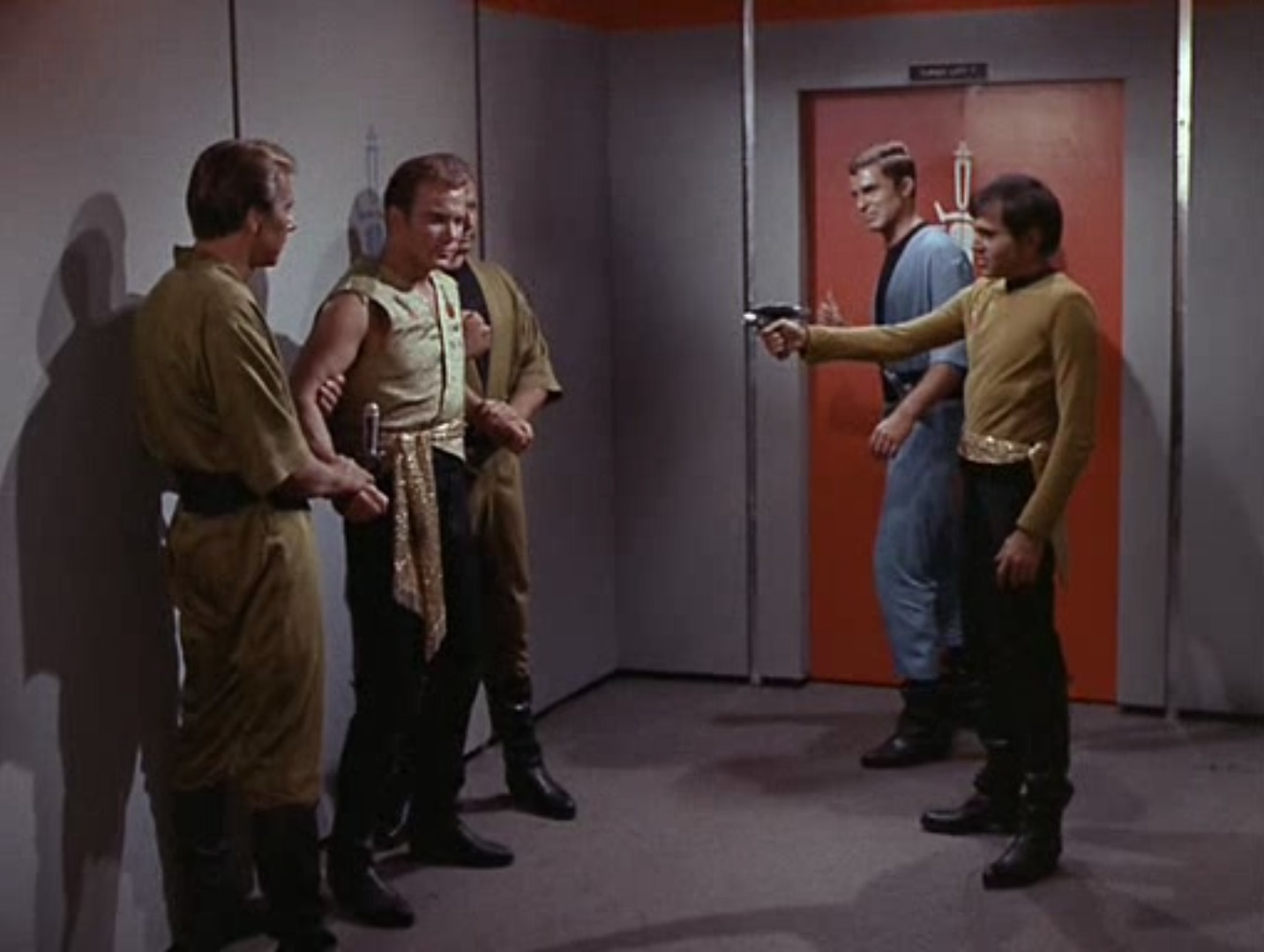
"You die, Captain, and I get to sing Mickey's songs."
Soon thanks to the male voiced, magically capable ship's computer, Kirk and McCoy confirm how they ended up on the opposite side of this dark looking-glass and learn of a way to return to their universe. As amazing as that was, we soon meet the other Captain Kirk's mistress and confidant, Marlena, waiting for him in his quarters, who shows our Kirk the powerful assassination weapon that he has at his disposal to wipe out all of his enemies. Marlena threatened to use it on Spock after he made clear to Kirk that he was under orders to kill him if he failed to purge the Halkans for refusing to allow the Empire rights to the dilithium.

The new Admiral TV not only has the brightest color, but it eliminates unwanted personnel!
The action and excitement then gets fast and intense as our crew carry out their plan to get home. Uhura gets into another struggle with the wicked Sulu and has to strike and almost shank him to save herself. Goatee Spock realizes things aren't right and captures our righteous four crewmembers for answers. This leads to another fight against the powerful Vulcan. Just as they found a way around Spock, the devious Sulu returns to kill everyone and murder his way to command of the ship. After an amazing save by Marlena using the weapon she told our Kirk about, she approaches the captain, explaining that she had learned everything about them and wanted to return to their world with them.
In the end it is the unerringly logical Spock of the violent universe helps our people return to their world as Kirk made a passionate, Nomad-level logical plea for him to rescue the people of this dark universe.
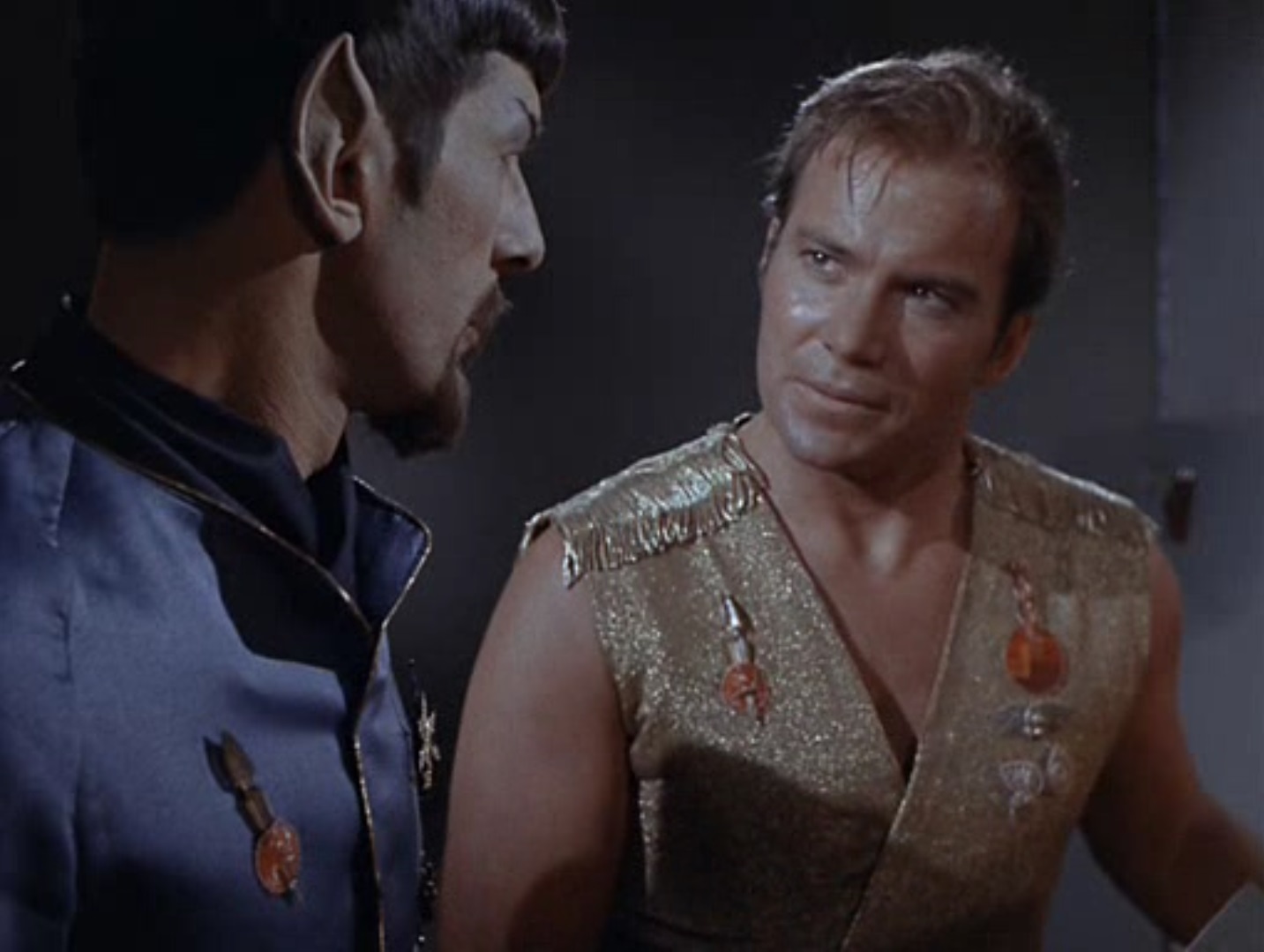
"And we have better donuts."
Our crew finally made it home and things were back to normal. The final scene has all four members of the landing party stricken with surprise as they meet the normal universe’s version of Marlena for the first time.
The range that we saw in some of the actors was chameleon-like. In particular, Sulu was a completely different person with a different deck of facial expressions than we are used to. Truly unlikeable.
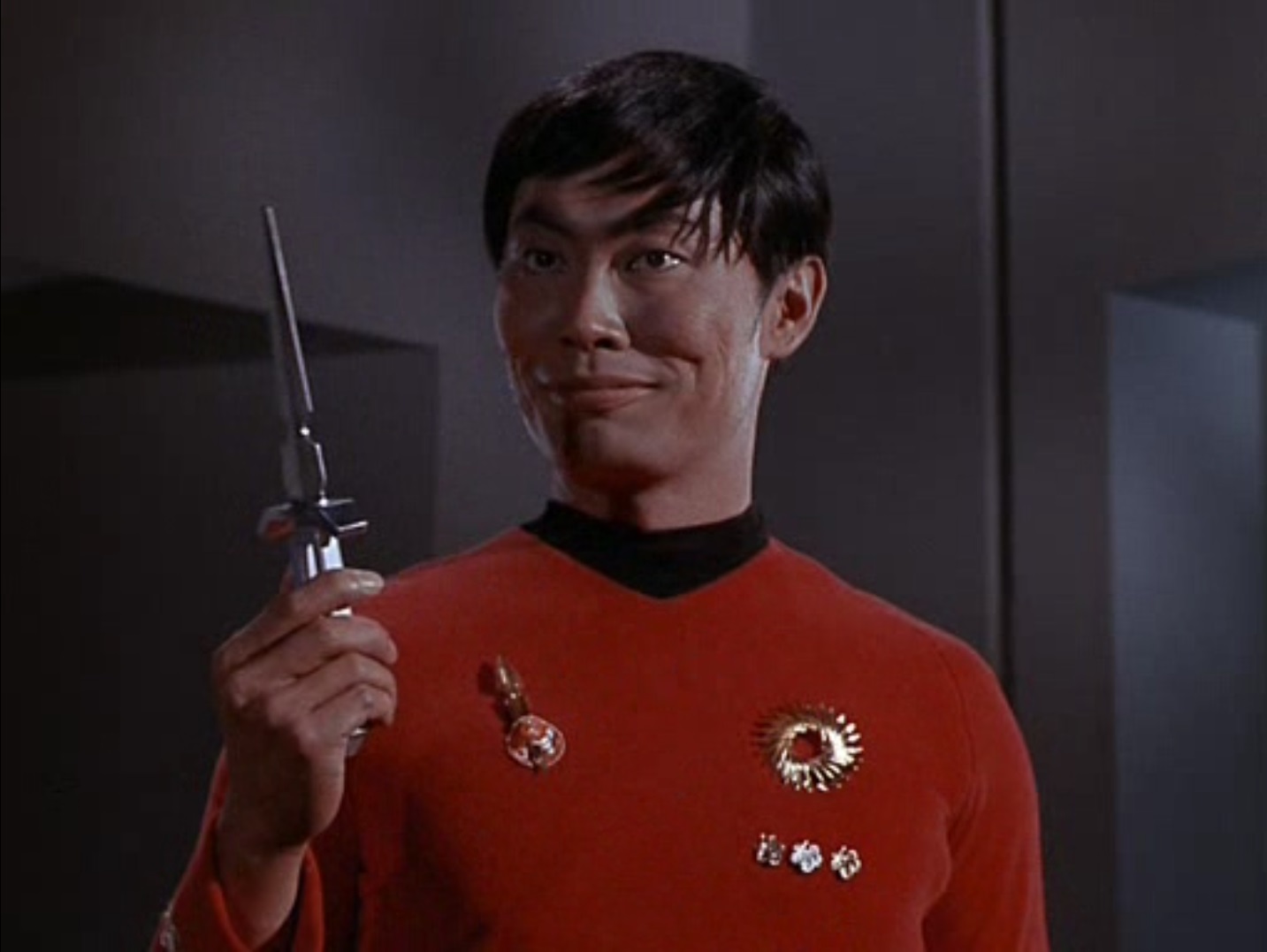
"Peel your apple?"
From concept to story to acting, this was the best night of television that I have seen in a dog’s age.
Five stars.
The Enemy Without

by Janice L. Newman
This week’s episode of Star Trek was about a good Kirk and an evil Kirk. Sound familiar? If you watched The Enemy Within, this episode might sound like it’s just the same idea revisited. Don’t be fooled! It’s not.
The premise of the episode, that there is a “parallel” universe similar to our own but where history took a different course, leading to a totalitarian empire instead of Starfleet and the federation of planets, is an intriguing one. The people in that universe are shaped by their environment: they are vicious, self-serving, traitorous, and sadistic. And yet, there are exceptions. Spock is still Spock, even when he is enforcing the empire’s orders. He describes McCoy as ‘soft’ and ‘sentimental’ (if McCoy is as dedicated to being a healer in this harsher world, it’s no wonder that Spock would think so).

A kinder McCoy?
The Enemy Within was a story of ‘man versus himself’, exploring what makes us human from the inside. Mirror, Mirror asks the opposite question: “How much does our environment make us who we are?” It’s an intriguing thought: who we might be if born under different circumstances. What kind of an environment creates a Hitler? Are we but one universe over from a world where someone – maybe you – pressed the button to start World War 3?
If there is anything this well-paced, well-acted episode lacked, it was screentime for the landing party’s counterparts. Unfortunately, the story simply couldn’t fit a focus on them in the hour-long runtime. I did appreciate that ‘our’ crew immediately realized that there was something wrong and locked up the alternates.
If you missed this week’s episode, I highly recommend catching the re-run next summer if you can. As much as I liked The Enemy Within, this episode is even better.
Five stars.
The middle road
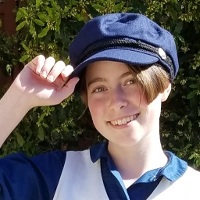
by Lorelei Marcus
Star Trek gives us a future that is aspirational, and perhaps brighter than our own. The Starfleet Federation borders on utopian, with scarcity of resources becoming almost nonexistent, and the main military body existing solely for goodwill and scientific exploration. It is refreshing to see a future where people of all colors and sexes (and even nonhumans) can work and be treated equally, particularly on the decks of the Enterprise.
In today's episode, we were presented with an alternative universe completely opposite to the Star Trek we are used to. Rather than a utopia, the world order resembled a totalitarian dictatorship with security police and brutal forms of punishment. It was a shock, to say the least, to see all of our favorite characters in this new environment and how they and their hierarchies changed. The lack of women on the mirror ship particularly stood out to me, and those that were left were no longer equal with the men – forced to prostitute themselves to gain any power and security.
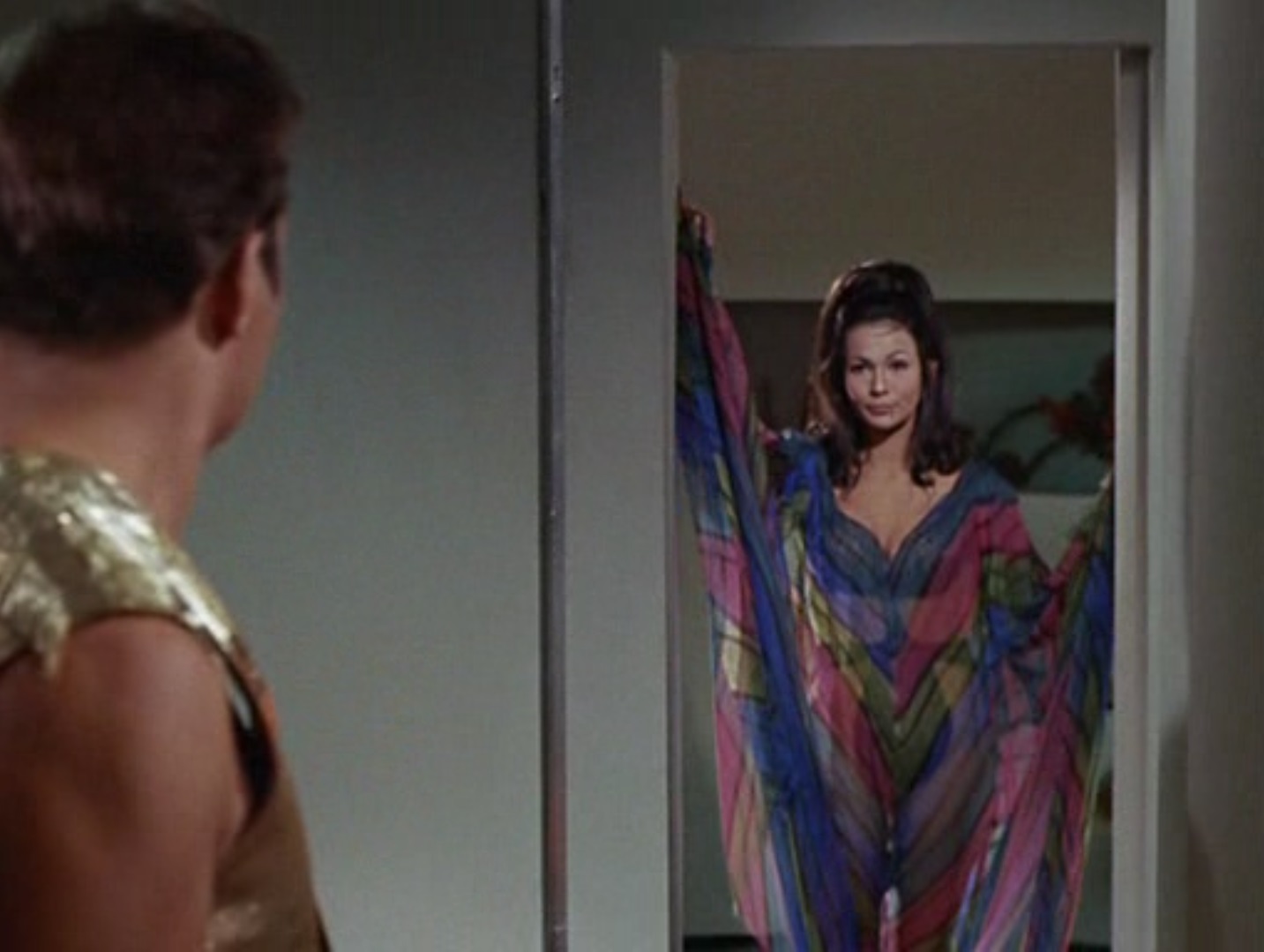
How to win friends and influence captains.
The parallel universe possibility intrigued me. Star Trek's main universe and this mirror universe are two ends of the spectrum. Could there be more parallel universes? And what would one that falls right in the middle of that spectrum look like? How closely would it represent our modern world? I can imagine a ship where there is still some distinction based on race and sex, if only systemically. The Enterprise would probably be sent on missions to settle the protests of disquieted colonies, or to do tactical phaser strikes on rogue planets that have sided with the Romulans. I see a universe with more poverty and more discontent with the Federation. Maybe Kirk would have an episode where he falls in love with a poor colonist girl, but she is an anti-Federationalist, and ultimately he must reject his personal life to reaffirm loyalty to his cause.
This thought experiment only makes me appreciate the world of Star Trek even more. Roddenberry really has done a spectacular job of building an independent universe that is not just a gussied up copy of our own. When I am watching, it is never hard to believe that what is on my television screen is truly the future. (Except for sometimes when they show Chekhov's hair).
The episode as a whole was fantastically done with an interesting premise and phenomenal acting.
Five stars.
"A Well Oiled Trap"

by Amber Dubin
Although this episode was most likely meant to repel the viewer with horror at the savagery exhibited by the mirror universe, the entire episode was so charged with the kind of raw, animalistic energy that it had the exact opposite effect on me.
From the very beginning of the episode, it becomes clear that the unrelenting barbarism of the mirror universe necessitates the exposure of the Starfleet's most exceptional qualities; both literally, with the flashy and extremely flattering improvements to the crewmen's uniforms, and figuratively, in the way all of them rise to the challenges they are faced with. This is displayed most dramatically by Uhura, who, bolstered by Kirk's faith in her, manages to overcome her initial fears and slips on the camouflage of a violent seductress as easily as putting on a second skin. Similarly, on the other ship, Spock's notorious intuition proves itself almost comically effective when he immediately recognizes the landing party as dangerous imposters and goes straight to work trying to get his real Captain back.
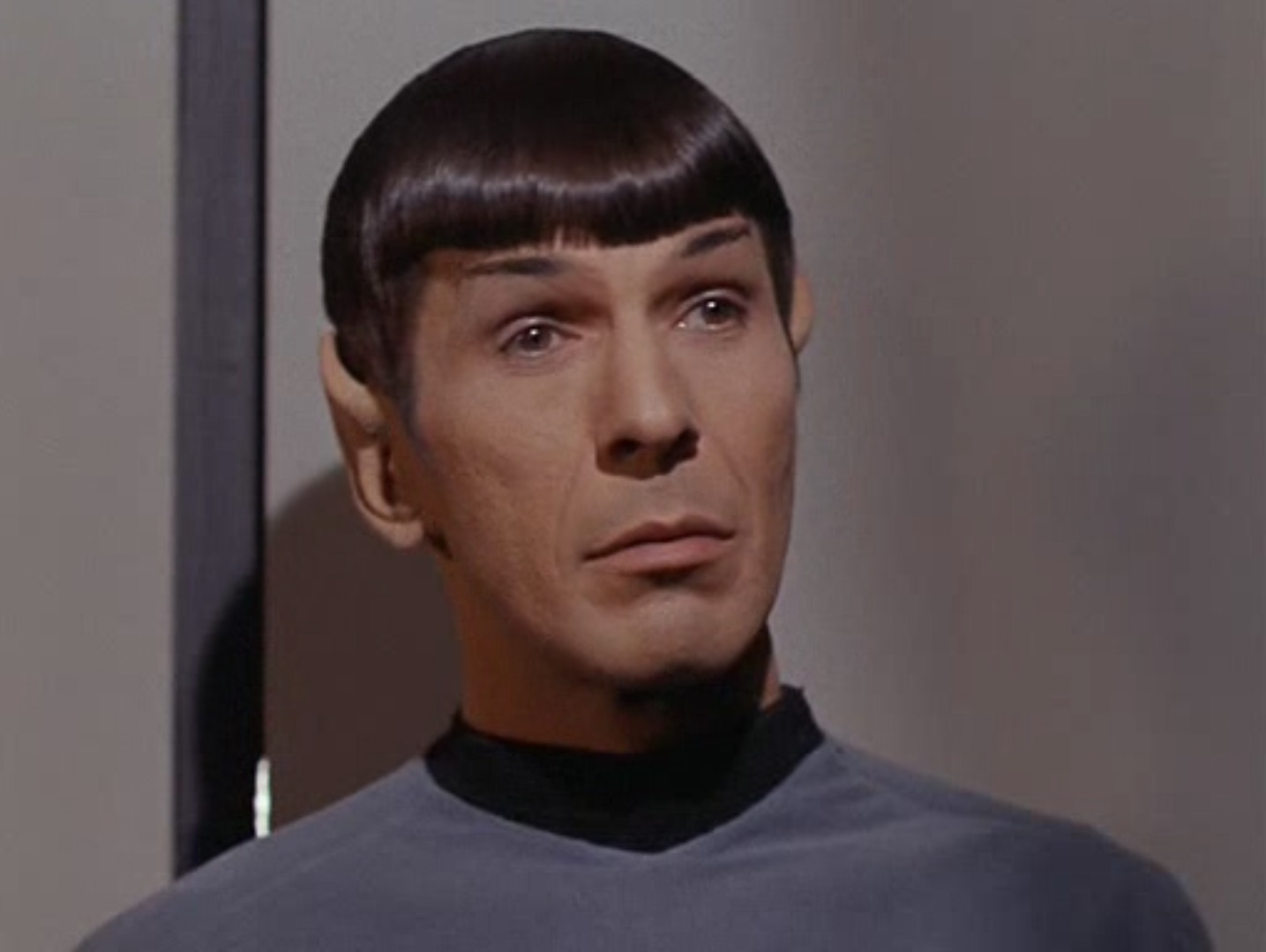
A most entertained Spock.
An even more intriguing theme in this episode is that as savage and chaotic as the behavior of the crew in this alternate universe is, their selfishness and barbarity only served to make them more human. Mirror Chekov and Sulu's actions are self-serving and violent, but their motivations are neither unreasonable nor excessively malicious in the context of their environment. If anything it could be argued that, stripped of the need to adhere to formalities, the way they behave is more honest and truer to their desires than their more 'civilized' counterparts. As our Spock says, the mirror crew were "In every way, splendid examples of homo sapiens. The very flower of humanity." This is shown best by the introduction of Marlena, a woman whose intelligence and impressive powers of intuition and seduction have allowed her to not only survive but to wind her way around the heart of a violent and psychopathic Captain Kirk. She even proves that she has not lost her moral center by saving Kirk's life even after he has revealed himself to be an imposter and wounded her ego by not succumbing to her wiles after she "oils [her] traps" for him. The alternate version of Spock shows this same level of integrity when he chooses to help the landing party return to their universe, despite the fact that this version of Kirk would logically be much easier to usurp and control than his stubborn, unreasonable, greedy and angry counterpart. The actions of these two mirror crewman suggest that this universe is not in fact evil, but may just be stripped bare of inhibitions that cause the crew we know to control or polish their true selves.
With the smooth delivery from its cast, brilliant script and mind-teasing metaphors, this episode acted upon me as a siren song that by the end had me echoing Marlena's plea to "take me with you."
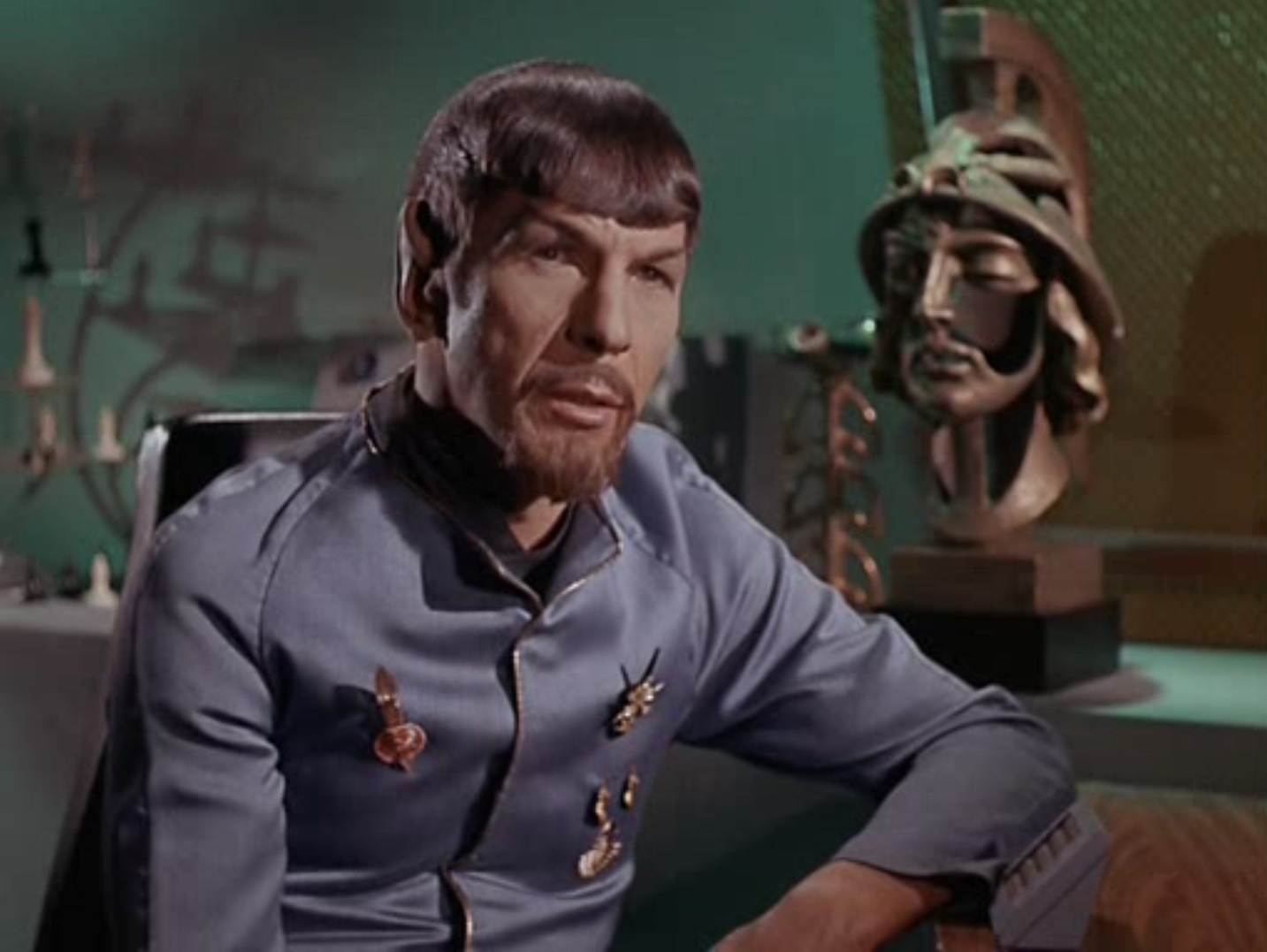
Sexy Spock with a beard didn't hurt either…
This episode deserves all the stars in the universe, but since the rating system limits me to five, I give it all of them.
Women's Liberation

by Erica Frank
Uhura found herself in a universe where women’s uniforms are made with a fraction of the fabric used in men’s, where they have to endure sexual advances at work, where some women get ahead by sleeping with the boss, and nobody dares object.
So…. not too different from our world, hmm?
After the initial shock of realizing her officer's uniform was smaller than some swimsuits back home and that Sulu’s spark of interest in her own world (“I’ll save you, fair maiden!”) was an obsession here, Uhura quickly adjusted her expectations and behaviors.
She didn’t cringe from the lustful gazes that followed her everywhere. She didn’t frantically check her wardrobe, trying to find something, anything that covered more skin and was still considered a Starfleet Empire uniform. She didn't demand one of the other men escort her and protect her.
She got herself a knife.

Chief Security Officer Sulu discovers that some women prefer to manage their own security.
She knew exactly how to cope with a workplace where men are allowed to demand sexual favors… and where women are allowed to set whatever terms they’d like, as long as they back them up with force.
As much as Uhura wanted to go home — back to a world where women have status based on their skills in the workplace and not between the sheets, where promotions are assigned by talent and not assassination, where Starfleet operates on principles of compassion instead of conquest — she knew how to operate in this one.
Drawing that knife on Sulu must have been tremendously vindicating. She wasn’t just facing him, but every faculty advisor who ever stood too close, every regional manager who said “come back to my place and we'll talk about your promotion,” every police officer who did a pat-down that was more grope than inspection.
In that shining moment, Uhura acted for all of us, every woman who's been told, "Smile more; women should be pretty!" (Followed by, "What was I supposed to think? You were always smiling at me!") The mirror-universe is a dark, twisted version of our own… but that moment on the bridge explained why some women are proud and happy to belong to the Starfleet Empire.
A world where men openly harass women and require them to be sexy at all times is not unknown to us. A world where we can strike back…that’s new.
Five stars.
Speaking of Star Trek, it's on tomorrow! And it seems to star Godzilla…
Here's the invitation! Come join us.
Also, copies of The Tricorder are still available — drop us a line for details!

![[October 12, 1967] See you on the flip side (<i>Star Trek</i>: "Mirror, Mirror")](https://galacticjourney.org/wp-content/uploads/2022/10/671012title-672x372.jpg)


![[September 28, 1967] We have met Divinity, and He is Ours (<i>Star Trek</i>: "Who Mourns for Adonais")](https://galacticjourney.org/wp-content/uploads/2022/09/670928title-672x372.jpg)
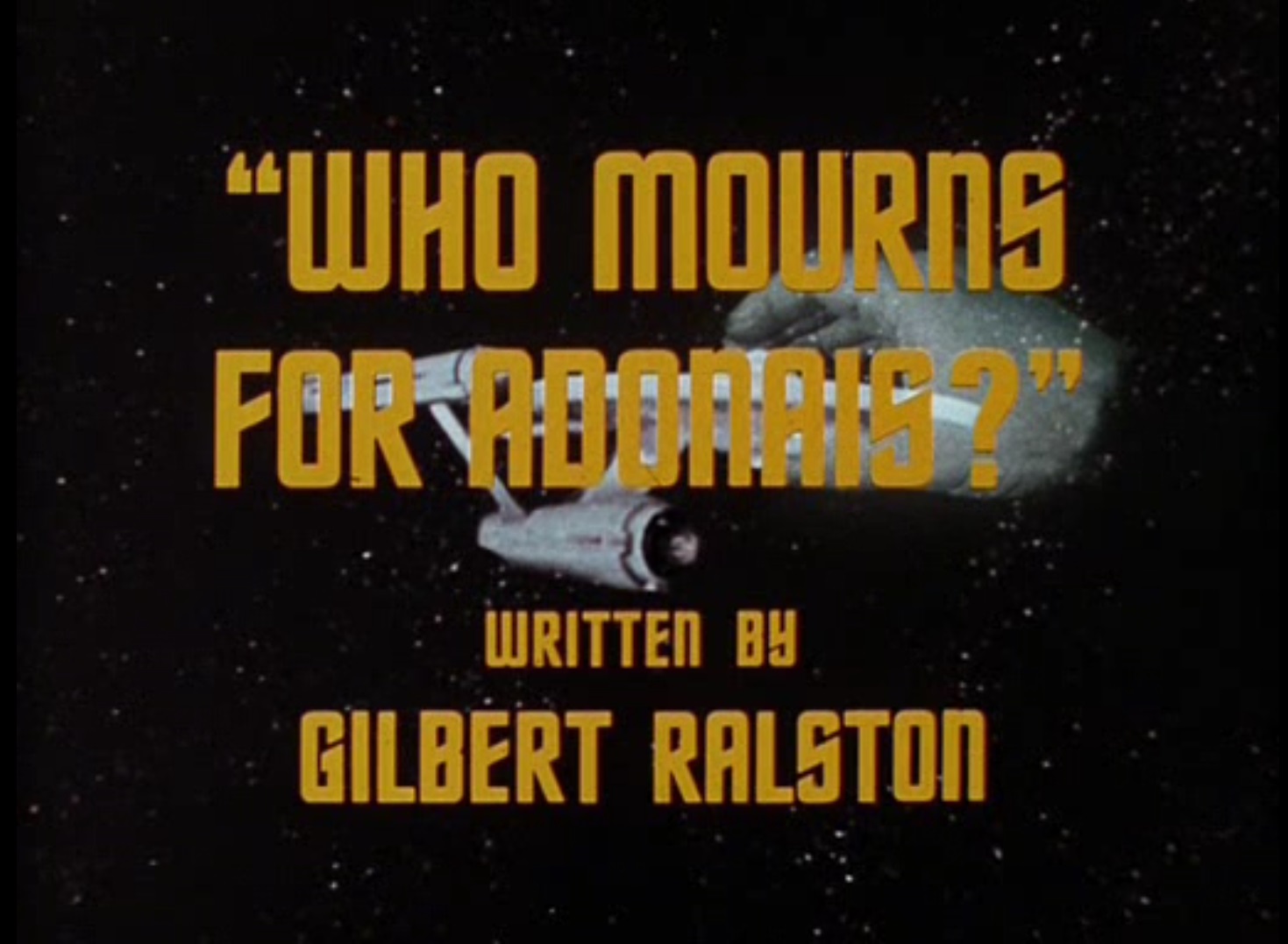
![[September 24th, 1967] A Really Cool Story (<i>Doctor Who</i>: Tomb Of The Cybermen)](https://galacticjourney.org/wp-content/uploads/2022/09/660924dontsayit-672x372.jpg)

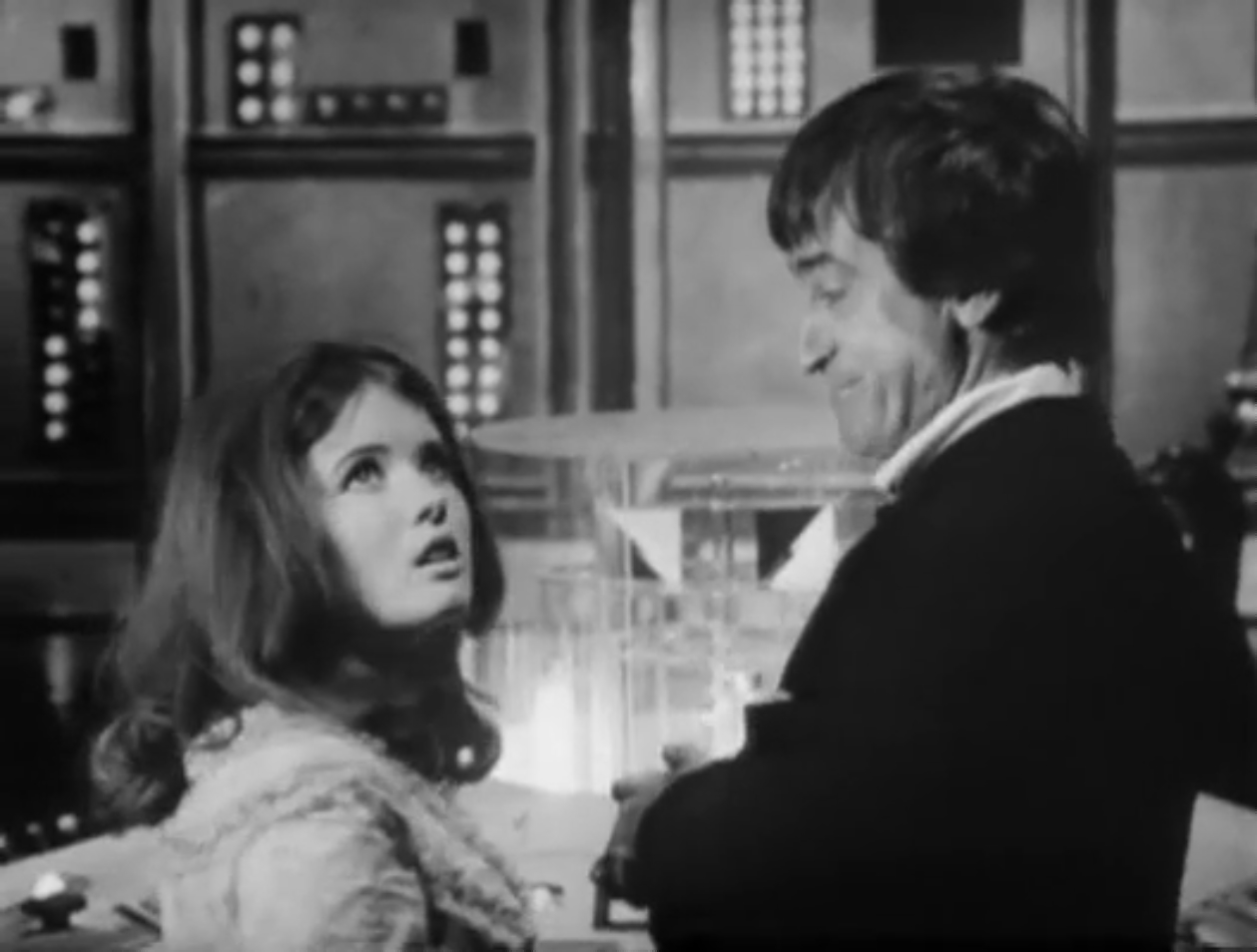
![[September 12, 1967] Heavens Above! (<i>The Fifteenth Pelican</i> and <i>The Flying Nun</i>)](https://galacticjourney.org/wp-content/uploads/2022/08/sddefault-2-619x372.jpg)











![[August 22, 1967] Boldly Going Down Under (Star Trek, Spies and space in Australia)](https://galacticjourney.org/wp-content/uploads/2022/08/AWW-ST-448x372.png)

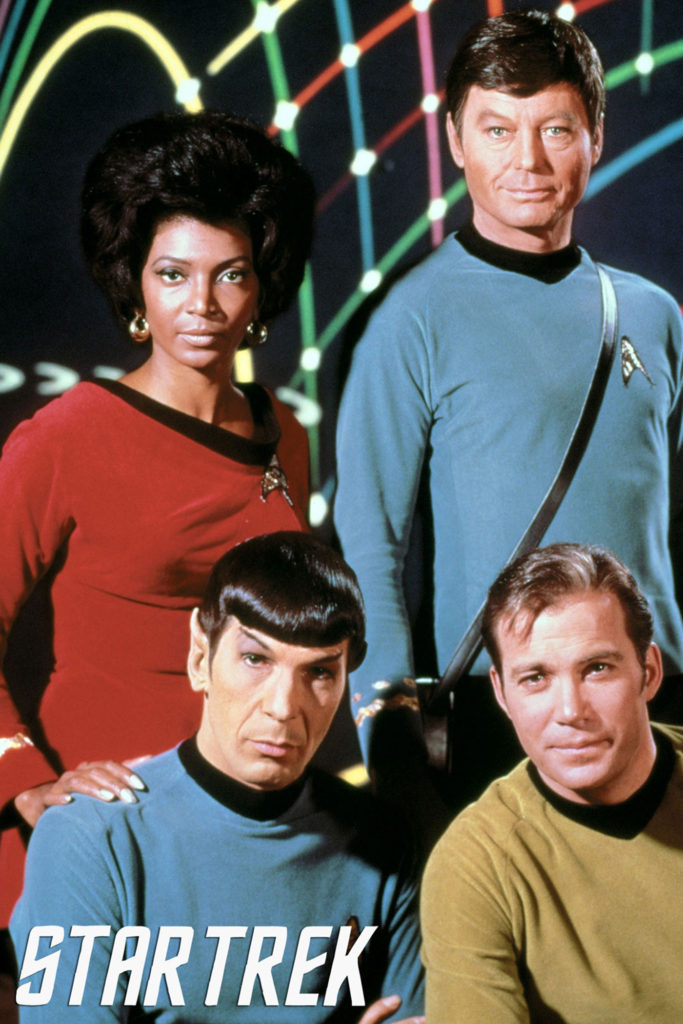
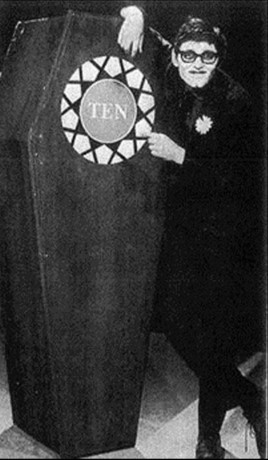
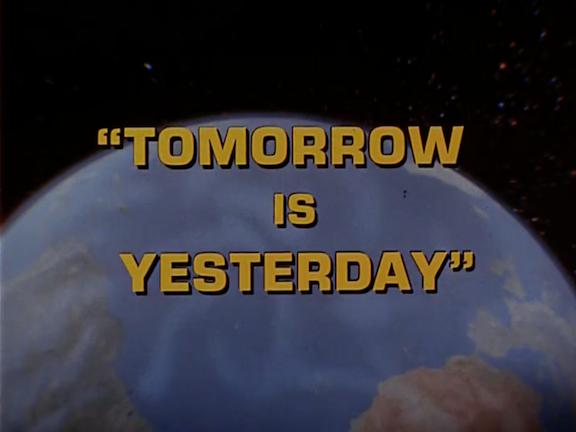
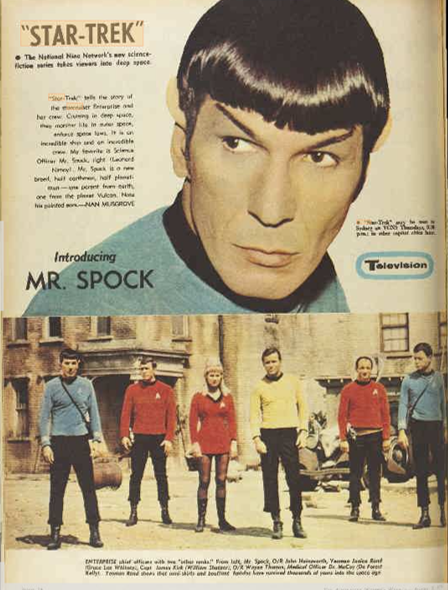
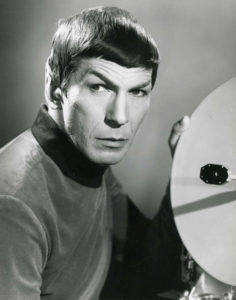
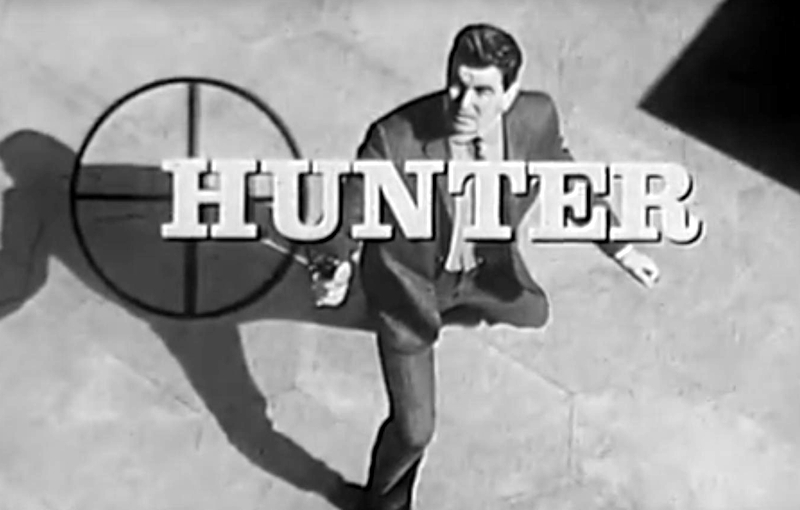

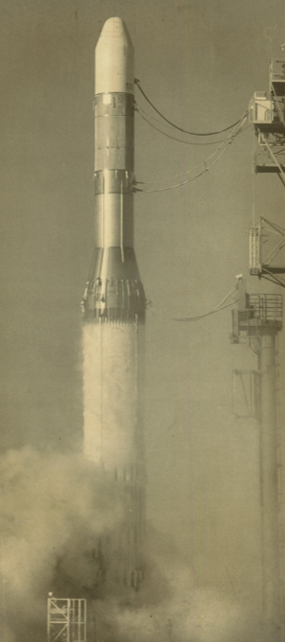
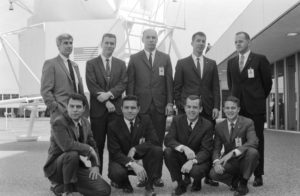
![[July 10, 1967] Return to Collinsport (the gothic soap opera, <i>Dark Shadows</i>)](https://galacticjourney.org/wp-content/uploads/2022/07/BarnabasPortrait-1-620x372.png)










![[July 2, 1967] An Explosive Ending (<i>Doctor Who</i>: THE EVIL OF THE DALEKS [Part 2])](https://galacticjourney.org/wp-content/uploads/2022/07/670702emperor-672x372.jpg)
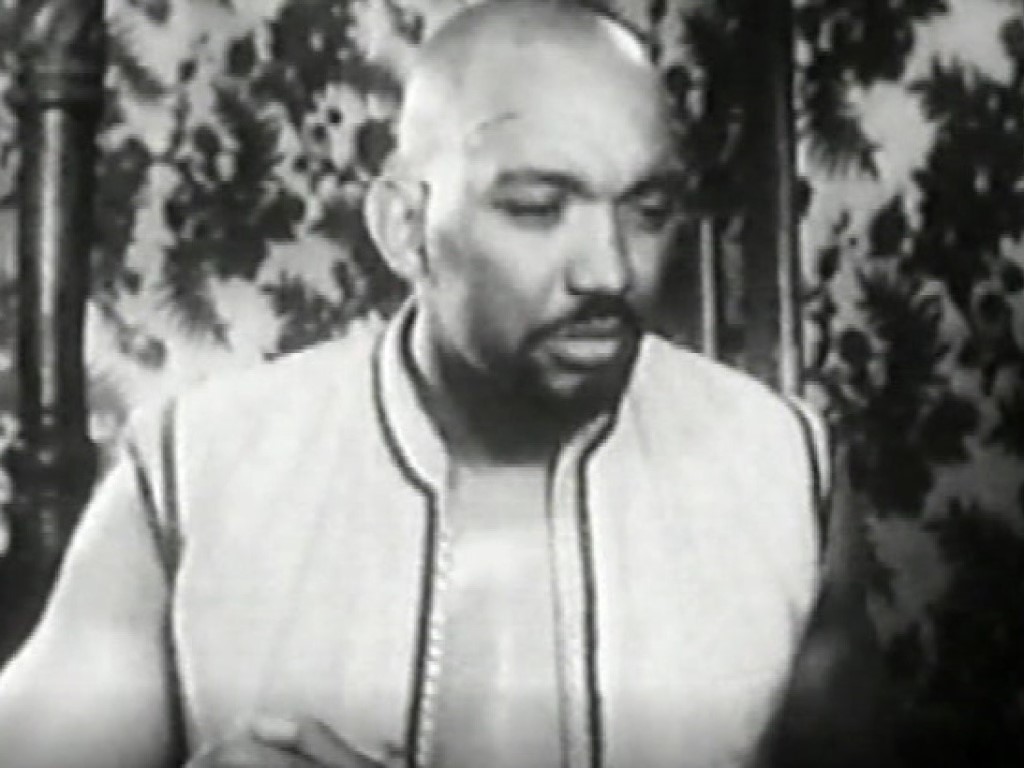
![[June 4, 1967] The Daleks Stoop To A New Low… Vehicle Theft! (<i>Doctor Who</i>: The Evil Of The Daleks [Part 1])](https://galacticjourney.org/wp-content/uploads/2022/06/660604dalek-672x372.jpg)
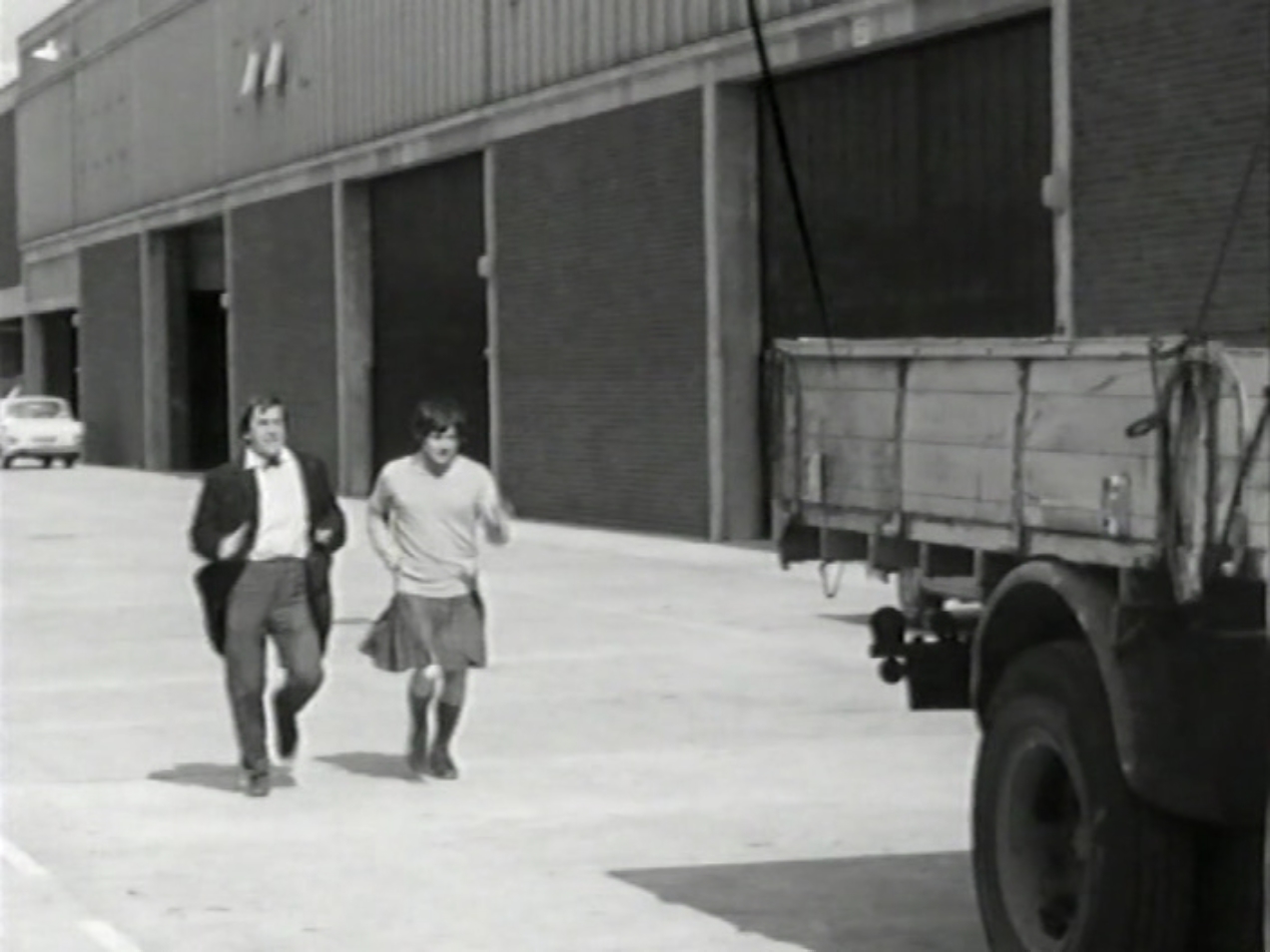
![[May 14, 1967] Ben And Polly To The Departure Gate (<i>Doctor Who</i>: The Faceless Ones [Part 2])](https://galacticjourney.org/wp-content/uploads/2022/05/670514benandpolly-672x372.jpg)
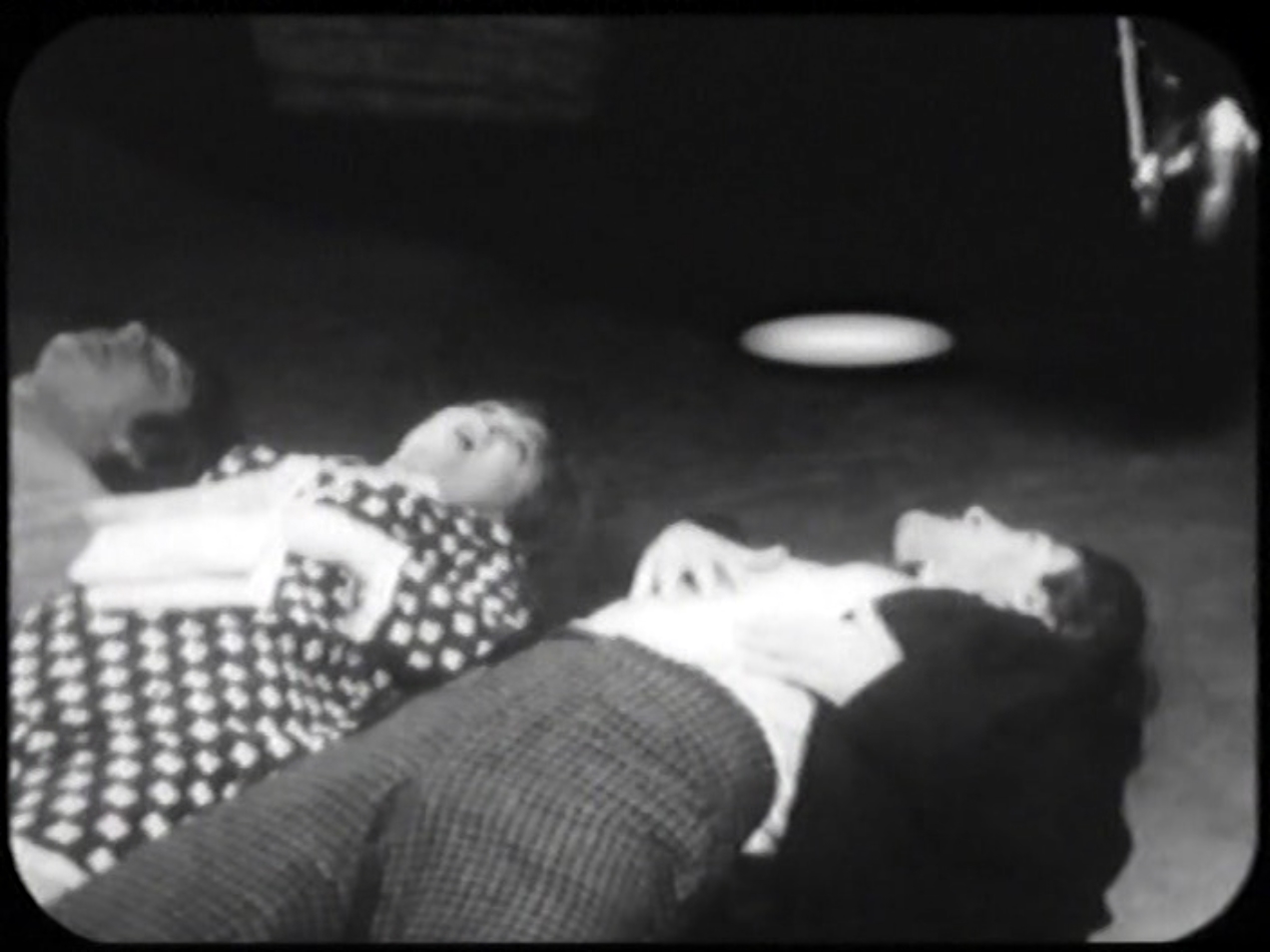
![[May 10, 1967] Float Like A Butterfly, Sting Like A Bee (<i>The Green Hornet</i>)](https://galacticjourney.org/wp-content/uploads/2022/05/670510title-672x372.jpg)

